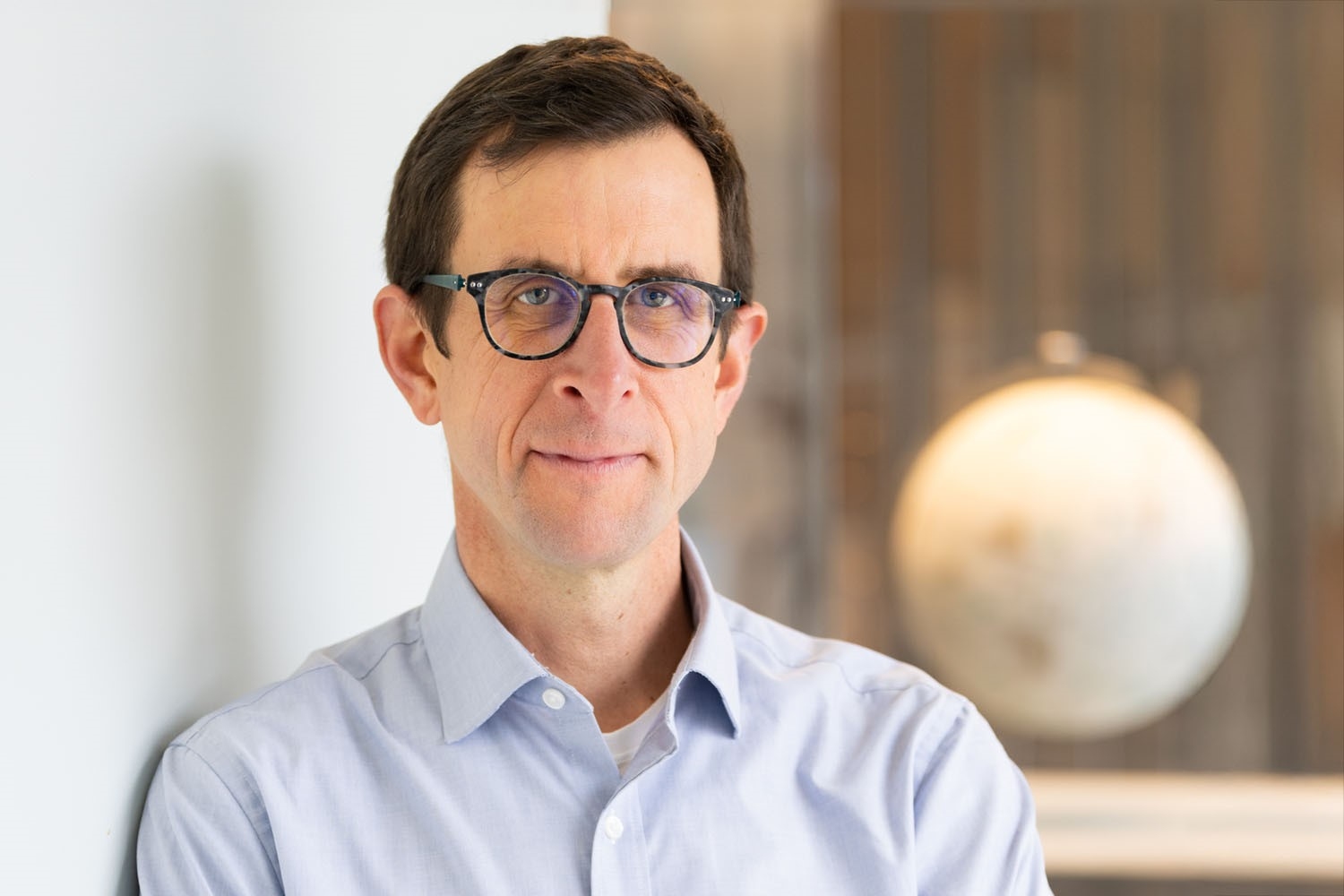
David McGee, the William R. Kenan Jr. Professor of Earth and Planetary Sciences at MIT, was recently appointed head of the MIT Department of Earth, Atmospheric and Planetary Sciences (EAPS), effective Jan. 15. He assumes the role from Professor Robert van der Hilst, the Schlumberger Professor of Earth and Planetary Sciences, who led the department for 13 years.
McGee specializes in applying isotope geochemistry and geochronology to reconstruct Earth’s climate history, helping to ground-truth our understanding of how the climate system responds during periods of rapid change. He has also been instrumental in the growth of the department’s community and culture, having served as EAPS associate department head since 2020.
“David is an amazing researcher who brings crucial, data-based insights to aid our response to climate change,” says dean of the School of Science and the Curtis (1963) and Kathleen Marble Professor of Astrophysics Nergis Mavalvala. “He is also a committed and caring educator, providing extraordinary investment in his students’ learning experiences, and through his direction of Terrascope, one of our unique first-year learning communities focused on generating solutions to sustainability challenges.”
“I am energized by the incredible EAPS community, by Rob’s leadership over the last 13 years, and by President Kornbluth’s call for MIT to innovate effective and wise responses to climate change,” says McGee. “EAPS has a unique role in this time of reckoning with planetary boundaries — our collective path forward needs to be guided by a deep understanding of the Earth system and a clear sense of our place in the universe.”
McGee’s research seeks to understand the Earth system’s response to past climate changes. Using geochemical analysis and uranium-series dating, McGee and his group investigate stalagmites, ancient lake deposits, and deep-sea sediments from field sites around the world to trace patterns of wind and precipitation, water availability in drylands, and permafrost stability through space and time. Armed with precise chronologies, he aims to shed light on drivers of historical hydroclimatic shifts and provide quantitative tests of climate model performance.
Beyond research, McGee has helped shape numerous Institute initiatives focused on environment, climate, and sustainability, including serving on the MIT Climate and Sustainability Consortium Faculty Steering Committee and the faculty advisory board for the MIT Environment and Sustainability Minor.
McGee also co-chaired MIT’s Climate Education Working Group, one of three working groups established under the Institute’s Fast Forward climate action plan. The group identified opportunities to strengthen climate- and sustainability-related education at the Institute, from curricular offerings to experiential learning opportunities and beyond.
In April 2023, the working group hosted the MIT Symposium for Advancing Climate Education, featuring talks by McGee and others on how colleges and universities can innovate and help students develop the skills, capacities, and perspectives they’ll need to live, lead, and thrive in a world being remade by the accelerating climate crisis.
“David is reimagining MIT undergraduate education to include meaningful collaborations with communities outside of MIT, teaching students that scientific discovery is important, but not always enough to make impact for society,” says van der Hilst. “He will help shape the future of the department with this vital perspective.”
From the start of his career, McGee has been dedicated to sharing his love of exploration with students. He earned a master’s degree in teaching and spent seven years as a teacher in middle school and high school classrooms before earning his PhD in Earth and environmental sciences from Columbia University. He joined the MIT faculty in 2012, and in 2018 received the Excellence in Mentoring Award from MIT’s Undergraduate Advising and Academic Programming office. In 2015, he became the director of MIT’s Terrascope first-year learning community.
“David’s exemplary teaching in Terrascope comes through his understanding that effective solutions must be found where science intersects with community engagement to forge ethical paths forward,” adds van der Hilst. In 2023, for his work with Terrascope, McGee received the school’s highest award, the School of Science Teaching Prize. In 2022, he was named a Margaret MacVicar Faculty Fellow, the highest teaching honor at MIT.
As associate department head, McGee worked alongside van der Hilst and student leaders to promote EAPS community engagement, improve internal supports and reporting structures, and bolster opportunities for students to pursue advanced degrees and STEM careers.
